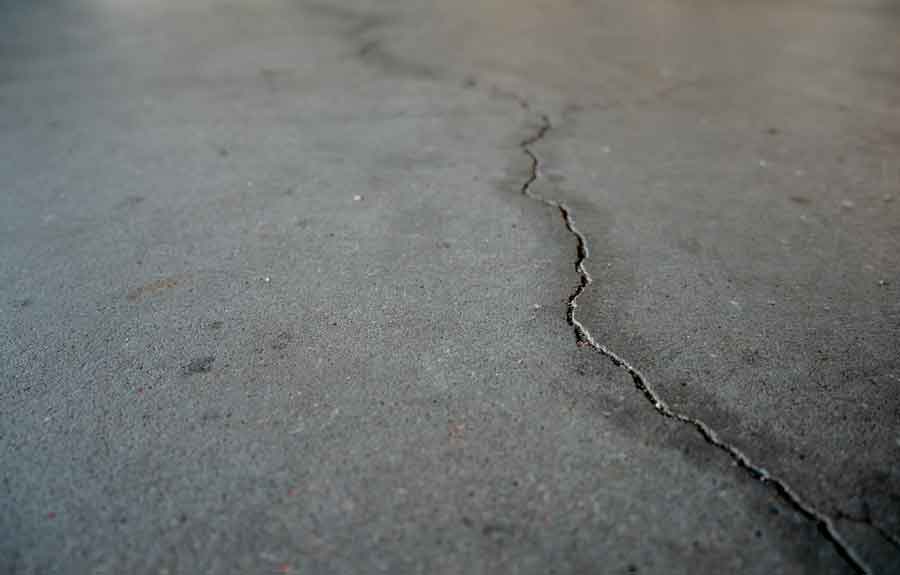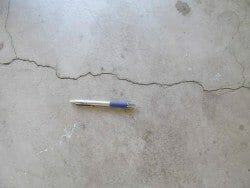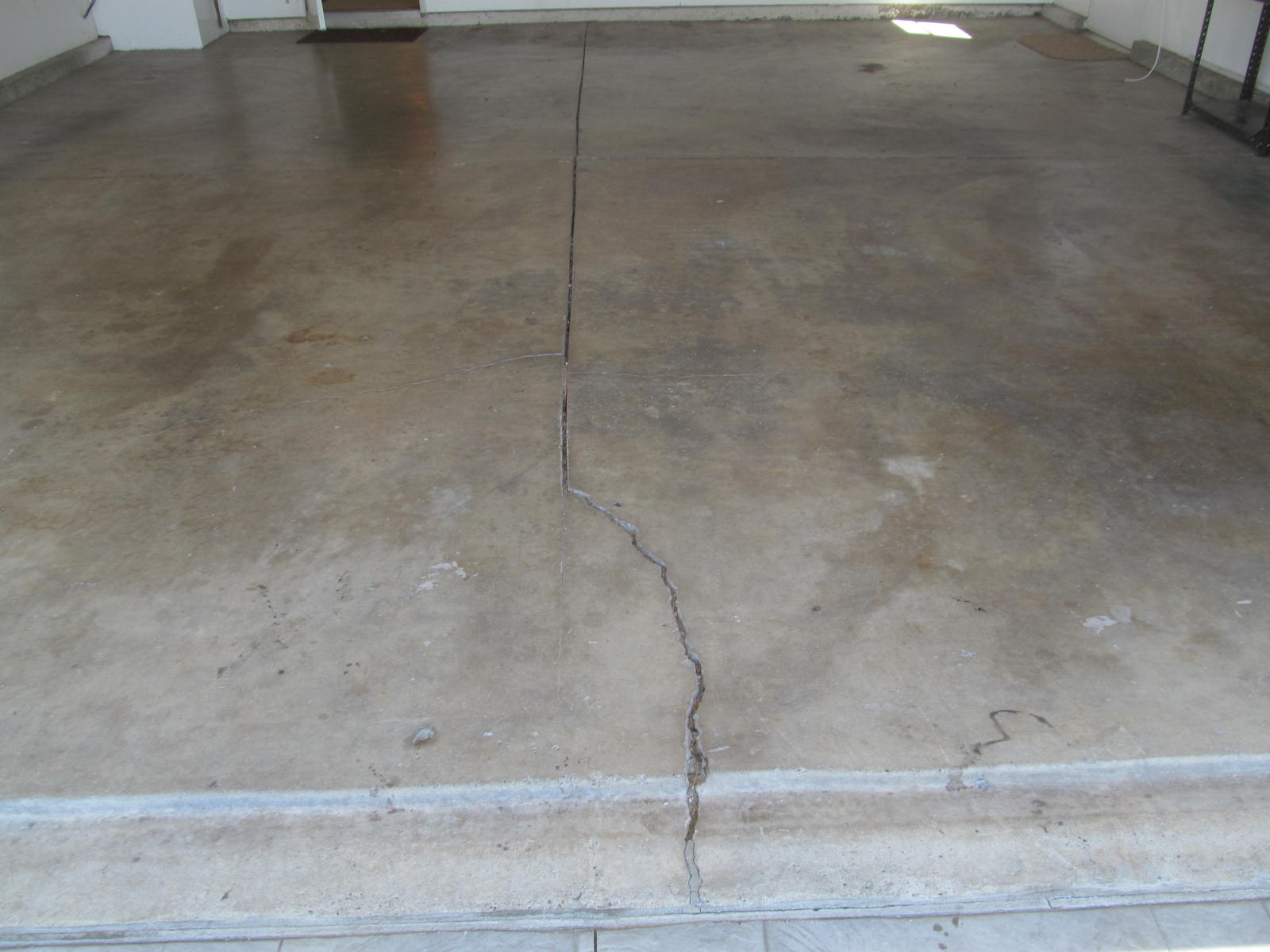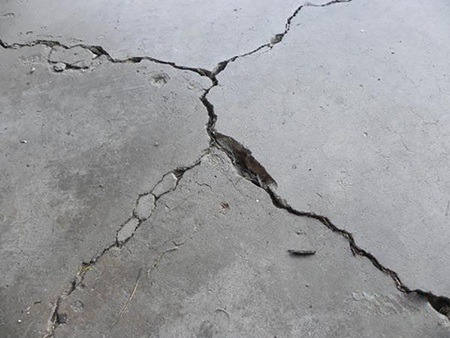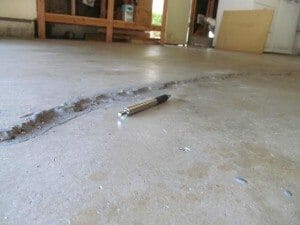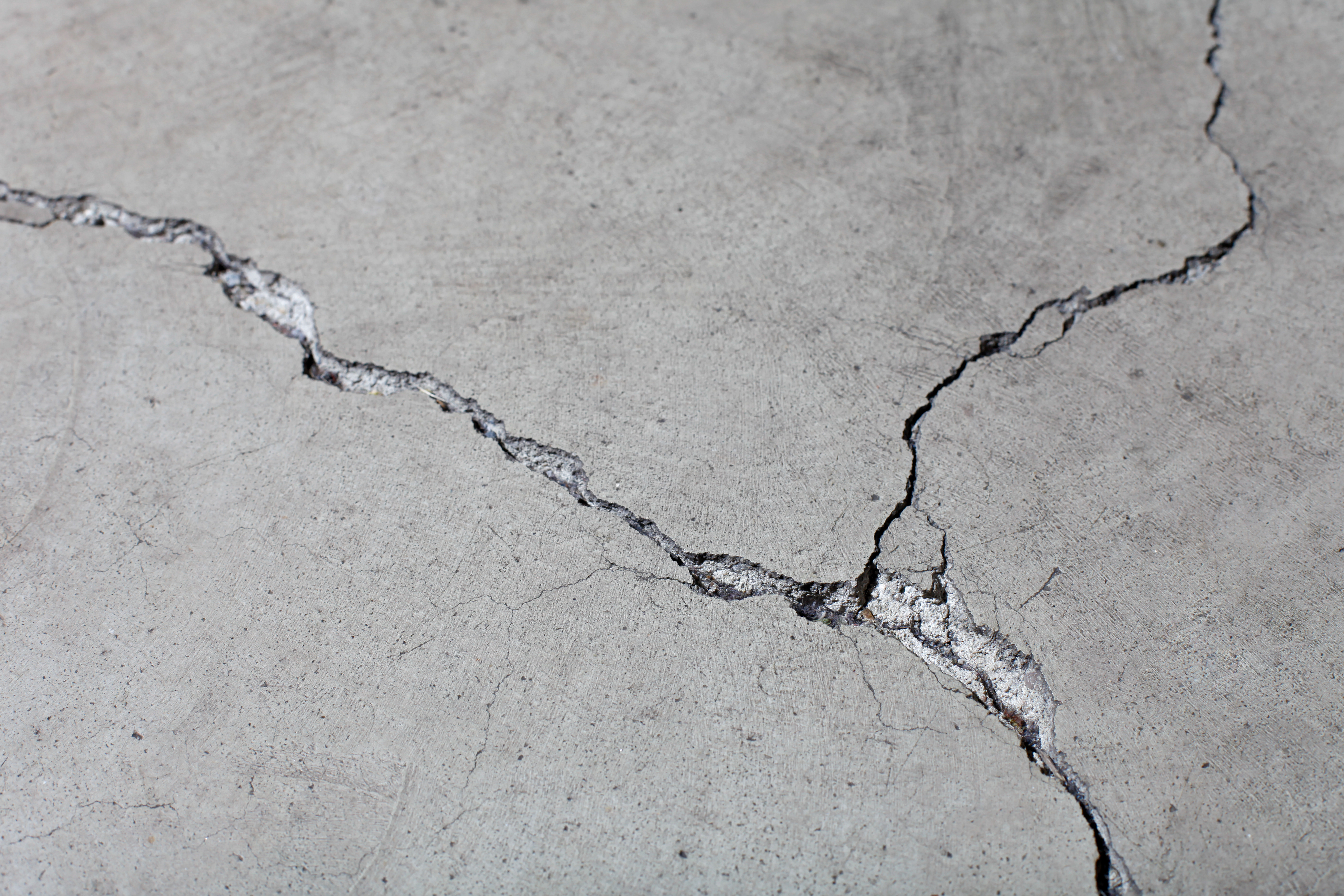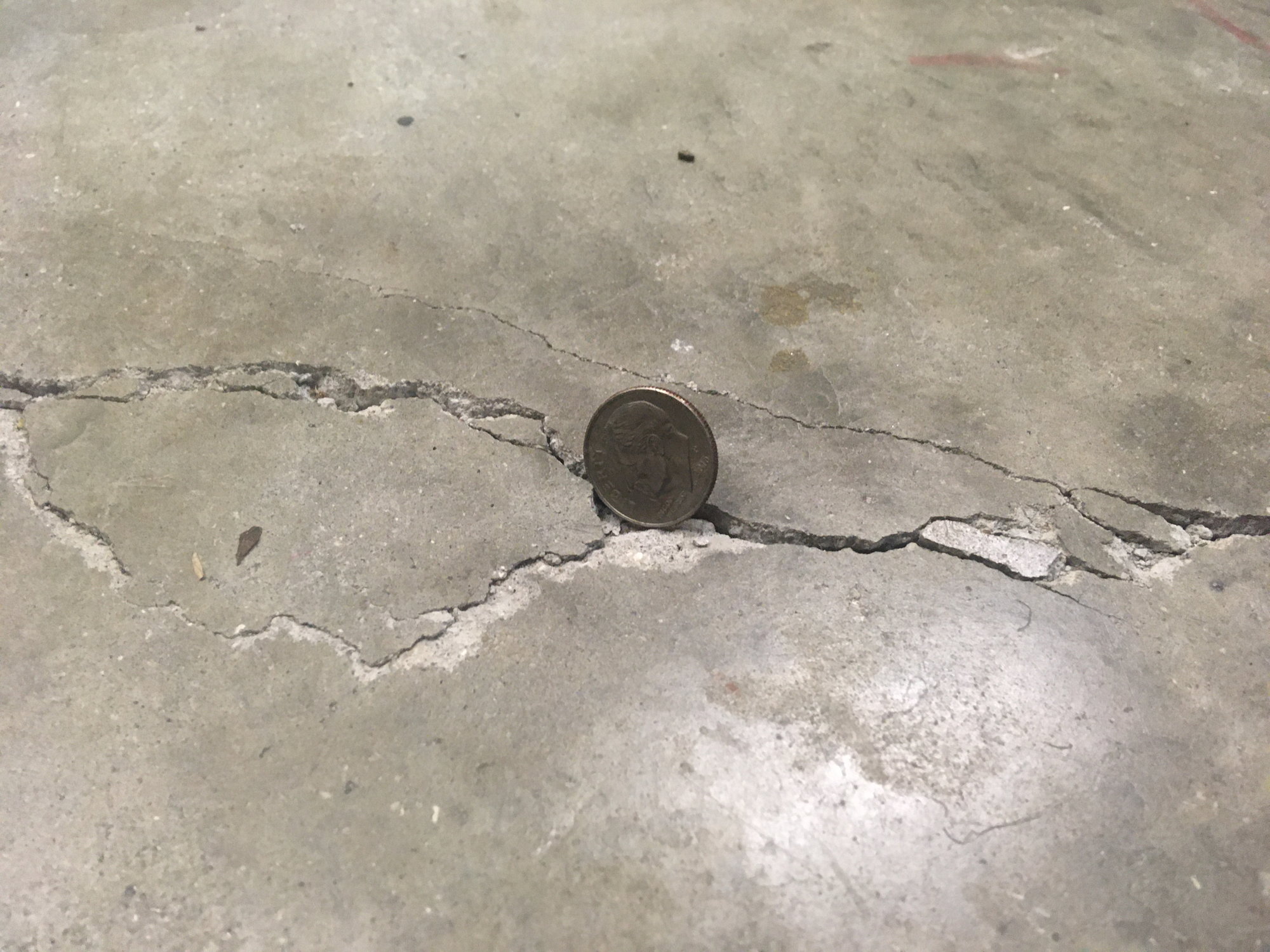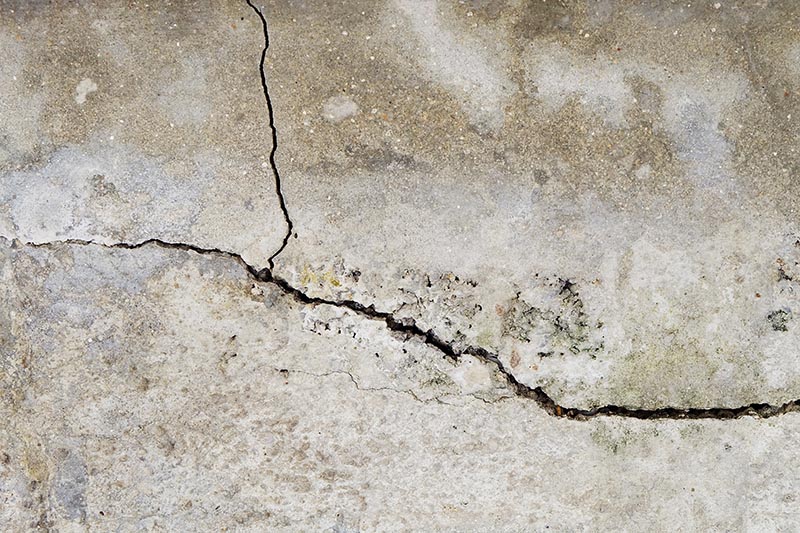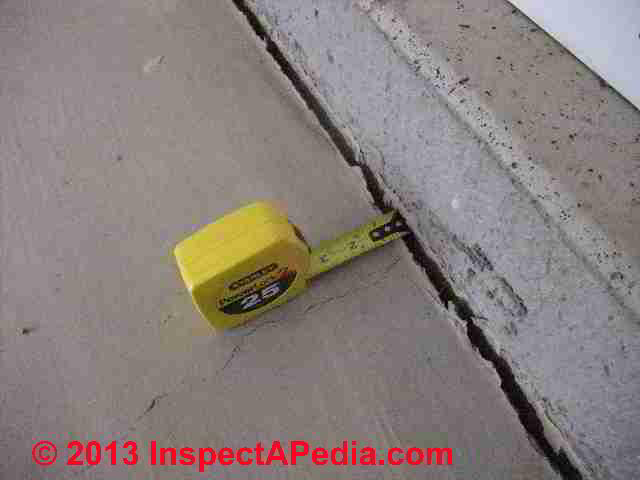Let’s talk about something that’s probably caught your attention every time you step into your garage – those cracks in your garage floor. It’s a common sight, and you might be wondering whether those cracks are just a normal part of owning a garage or if they’re signaling trouble beneath the surface. Don’t fret! In this article, we’re diving into the world of garage floor cracks, understanding what’s normal, what’s not, and how to keep your garage in tip-top shape. Let’s roll!
Causes of Garage Floor Cracks
So, picture this: your garage floor is like a warrior, battling the elements and the weight of your vehicles day in and day out. Over time, it’s bound to develop some battle scars, also known as cracks. Here’s why:
- Natural Settling: Just like a new house takes time to settle, so does your garage floor. As the concrete cures and dries, tiny hairline cracks might appear. It’s like a rite of passage for concrete.
- Temperature Dance: Ever noticed how concrete expands in the heat and contracts in the cold? These temperature fluctuations can lead to cracks as your floor tries to find its balance.
- Heavy Load Drama: Your car, your kids’ bikes, and all that stuff you’ve been hoarding – they put weight on the floor. Sometimes, the stress is real, and cracks show up as a result.
- Ground Shuffles: The soil underneath your garage isn’t sitting still either. It moves, and shifts, and that movement can translate to cracks on the surface.
Differentiating Between Normal and Problematic Cracks
Let’s get to the nitty-gritty of the cracks. Not all cracks are created equal, and knowing the difference is key:
- Hairline Cracks: These little guys are usually harmless. They’re super thin and often show up during the curing process. They’re like tiny stretch marks – just part of the concrete’s growth.
- Settling Cracks: If your garage floor were a puzzle, settling cracks would be the pieces fitting into place. They’re usually vertical, and while they might look alarming, they’re pretty normal.
- Structural Cracks: Now, here’s where you might want to pay attention. If cracks are wide, and deep, or have caused parts of your floor to sink or rise, there might be bigger issues at play.
- Expansion Joints: These intentional gaps are like safety valves for your concrete. They’re spaced out and often sealed to give the floor room to breathe during temperature changes.
Factors Affecting Cracks
Just like how your mood affects your choices, different factors affect garage floor cracks:
- Weather Whims: Extreme weather – hot, cold, wet, dry – it all plays a role in how your garage floor behaves.
- Quality Counts: The way your garage was built matters. A well-constructed floor is more likely to handle cracks better.
- Soil Shenanigans: The ground underneath isn’t as stable as you might think. Soil movement can lead to cracks up top.
- Use and Abuse: If your garage doubles as a workshop or a storage unit, heavy usage can lead to more cracks.
Addressing Normal Cracks
Don’t stress too much about those little cracks. Here’s what you can do:
- Keep an Eye Out: Regularly inspect your floor. If you notice any changes, you’ll be on top of things.
- Seal the Deal: For those hairline cracks, sealing them not only looks good but can prevent moisture from making things worse.
- Tread Lightly: Mind how you use your garage. If you’ve got a heavy car or you’re constantly moving things around, consider using mats or padding to distribute the load.
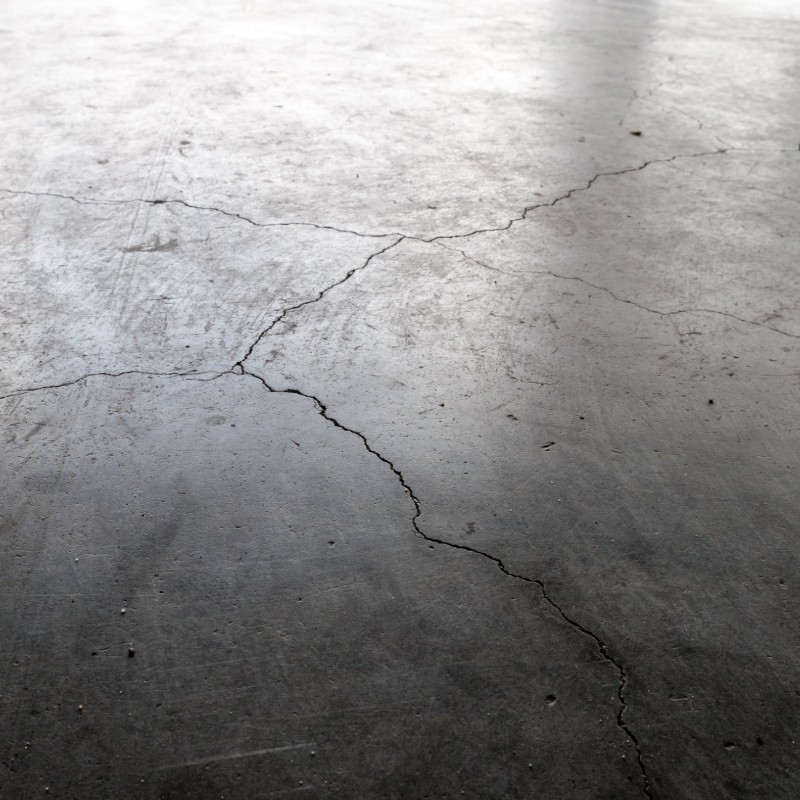
When to Seek Professional Assessment
Sometimes, cracks are more than they seem. It’s time to call in the pros if:
- Cracks Won’t Quit: If those cracks keep getting wider and deeper, it’s time for expert eyes.
- Sinking Suspicion: If parts of your garage floor start sinking or heaving, that’s not a normal yoga pose for concrete.
- Wonky Floors: Uneven floors can mess with your car, your storage, and even your balance. Time to get someone who knows their stuff.
Preventive Measures
Prevention is the name of the game. Here’s how you can give your garage floor a fighting chance:
- Good Foundation: When your garage was built, make sure the ground was well-prepped. A strong foundation goes a long way.
- Reinforce and Conquer: Adding reinforcement materials like wire mesh or rebar during construction strengthens your floor.
- Seal the Deal: Applying sealants and coatings not only protects your floor from moisture but also adds an extra layer of defense.
- Drainage Dance: Manage water runoff and drainage around your garage. Excess water can weaken the soil and lead to more cracks.
Well, there you have it – the lowdown on the garage floor cracks. Remember, a few cracks here and there are like wrinkles on your favorite jeans – they add character. But it’s important to know when those cracks are just a sign of your garage’s journey or when they’re hinting at something more serious. Regular TLC, preventive measures, and a little bit of expert guidance can keep your garage floor happy and worry-free. So, next time you’re in your garage, give those cracks a nod of understanding – they’re just part of the concrete story.
Cracks in Your Garage Floor? Hereu0027s What To Do – Garage Transformed
Cracks In a Concrete Garage Floor: When Are They Serious – Buyers Ask
Cracked Concrete Floor: Garages or House Slab – Buyers Ask
Garage Floor Crack Repair 101 (Plus When to DIY u0026 When to Call a Pro)
Cracks In a Concrete Garage Floor: When Are They Serious – Buyers Ask
How to Put Down Flooring on a Cracked Concrete Slab
how to fix crack in garage floor? – The Hull Truth – Boating and
Youu0027ve Found a Foundation Crack in Your Garage Floor. Now What
Concrete Shrinkage Gaps – Identify u0026 Evaluate Shrinkage Cracks in
Related Posts:
- Durable Garage Floor Covering
- Garage Floor Paint Preparation
- Garage Floor Makeover Ideas
- Garage Floor Epoxy White
- Heavy Duty Garage Floor Coating
- High Gloss Garage Floor Coating
- Garage Floor Epoxy Sealer
- PVC Garage Flooring Tiles
- Garage Floor Options Comparison
- Garage Floor Base Molding
Introduction
Garage floors often suffer from cracks, but this doesn’t necessarily mean they are damaged. In some cases, it’s just a normal part of the aging process. To determine whether the cracks are normal or not, it’s important to understand the different types of cracks and how they form. This article will discuss the various types of garage floor cracks and answer some frequently asked questions about the subject.
Common Types of Garage Floor Cracks
Garage floors can suffer from a variety of different types of cracks. Each type of crack has different characteristics and causes. The most common types of garage floor cracks are:
Hairline Cracks
Hairline cracks are thin and narrow, usually no wider than 1/16th of an inch in width. These cracks often occur naturally over time due to shrinkage in the concrete slab as it cures and dries out. Hairline cracks are generally considered normal and do not typically require repair unless they are causing drainage issues or are growing in size.
Large, Spiderweb-Like Cracks
Large, spiderweb-like cracks are typically caused by movement in the underlying soil beneath the concrete slab. This can be caused by changes in moisture content, frost heaves, or other shifts in the soil below the slab. These cracks typically start out small but can grow over time as the underlying soil continues to shift. Large spiderweb-like cracks generally require repair as they can affect the structural integrity of the slab.
Shrinkage Cracks
Shrinkage cracks form when the concrete is curing and drying out. Concrete is made up of a mixture of water, cement, sand, and gravel. As the concrete cures, it will gradually lose moisture which can cause the concrete to shrink slightly. This shrinking can cause tiny hairline cracks to form in the surface of the slab. Shrinkage cracks are generally normal and do not require repair unless they are causing drainage issues or are growing in size.
Settlement Cracks
Settlement cracks form when there is an uneven distribution of weight on the garage floor slab. These uneven loads can cause one side of the slab to sink slightly while the other side remains level, resulting in a crack or separation between the two sides. Settlement cracks are generally not considered normal and may require repair to prevent further movement or cracking in the slab.
FAQs on Garage Floor Cracks
Q: Are all garage floor cracks normal?
A: No, not all garage floor cracks are normal. Hairline and shrinkage cracks are generally considered to be normal and do not typically require repair unless they are causing drainage issues or growing in size. On the other hand, large spiderweb-like cracks and settlement cracks are generally not considered normal and may require repair to prevent further movement or cracking in the slab.
Q: How do I tell if my garage floor has a crack?
A: If you suspect that your garage floor has a crack, you should inspect it closely for signs of cracking or separation between two sections of the slab. Hairline cracks will usually be no wider than 1/16th of an inch while larger spiderweb-like or settlement cracks may be more visible due to their larger size.
Q: What should I do if I find a crack in my garage floor?
A: If you find a crack in your garage floor, you should assess its severity to determine if it requires repair or not. Hairline and shrinkage cracks usually do not require repair unless they are causing drainage issues or growing in size while large spiderweb-like or settlement cracks may require repair to prevent further movement or cracking in the slab. If you’re unsure about what type of crack it is or whether it needs repair, you should consult a professional for advice on what steps to take next.
Q: How can I prevent my garage floor from cracking?
A: The best way to prevent your garage floor from cracking is by ensuring that it is properly installed with a quality concrete mix and that it is sealed properly with a good sealant product. Additionally, you should make sure that any heavy objects placed on top of your garage

